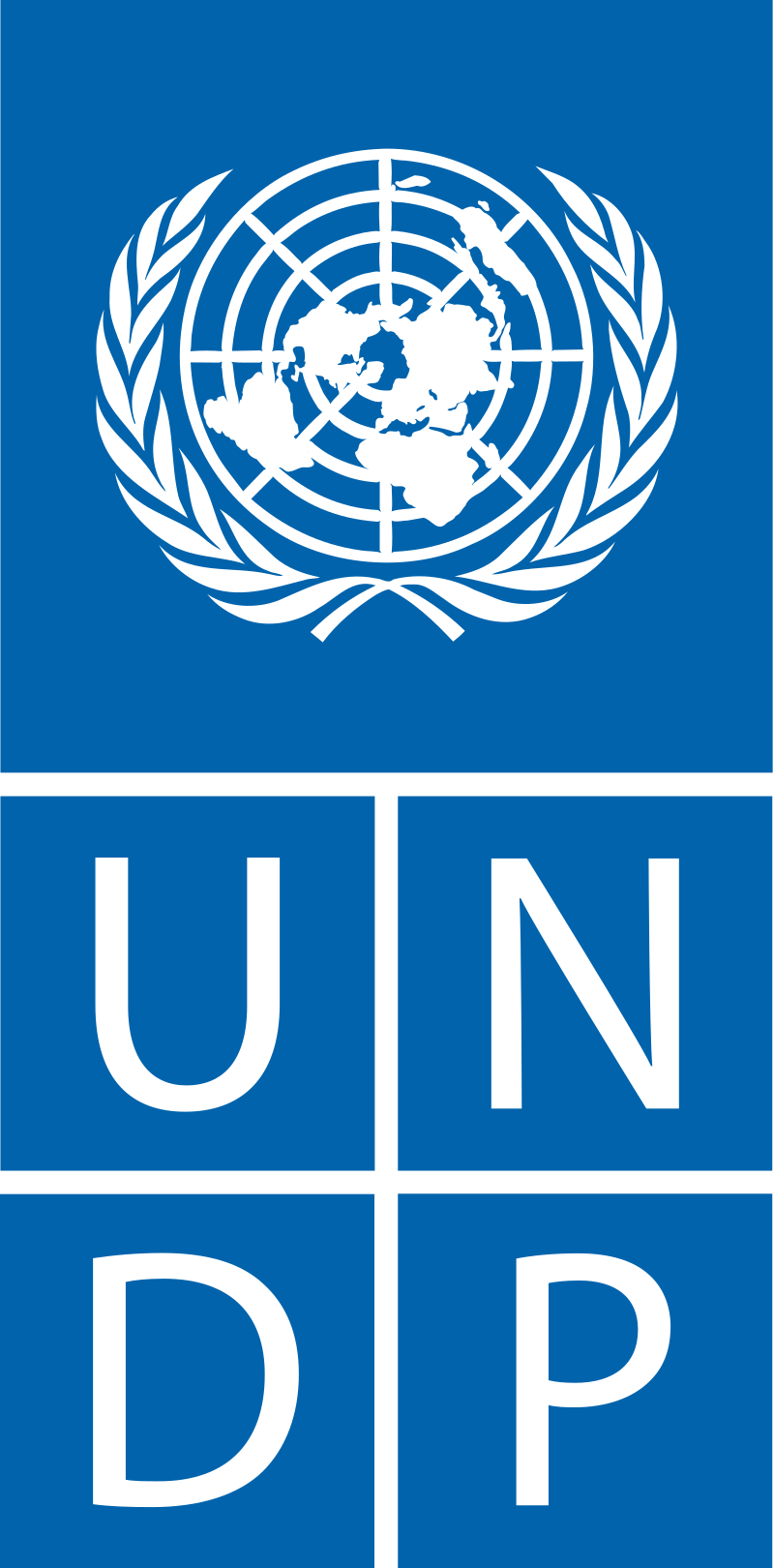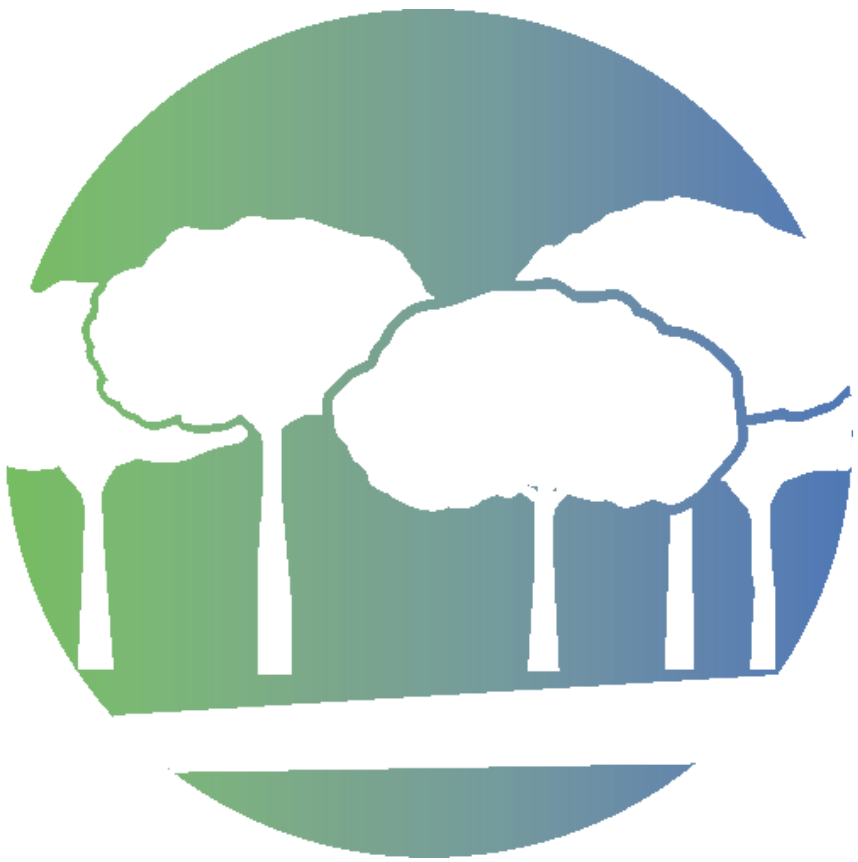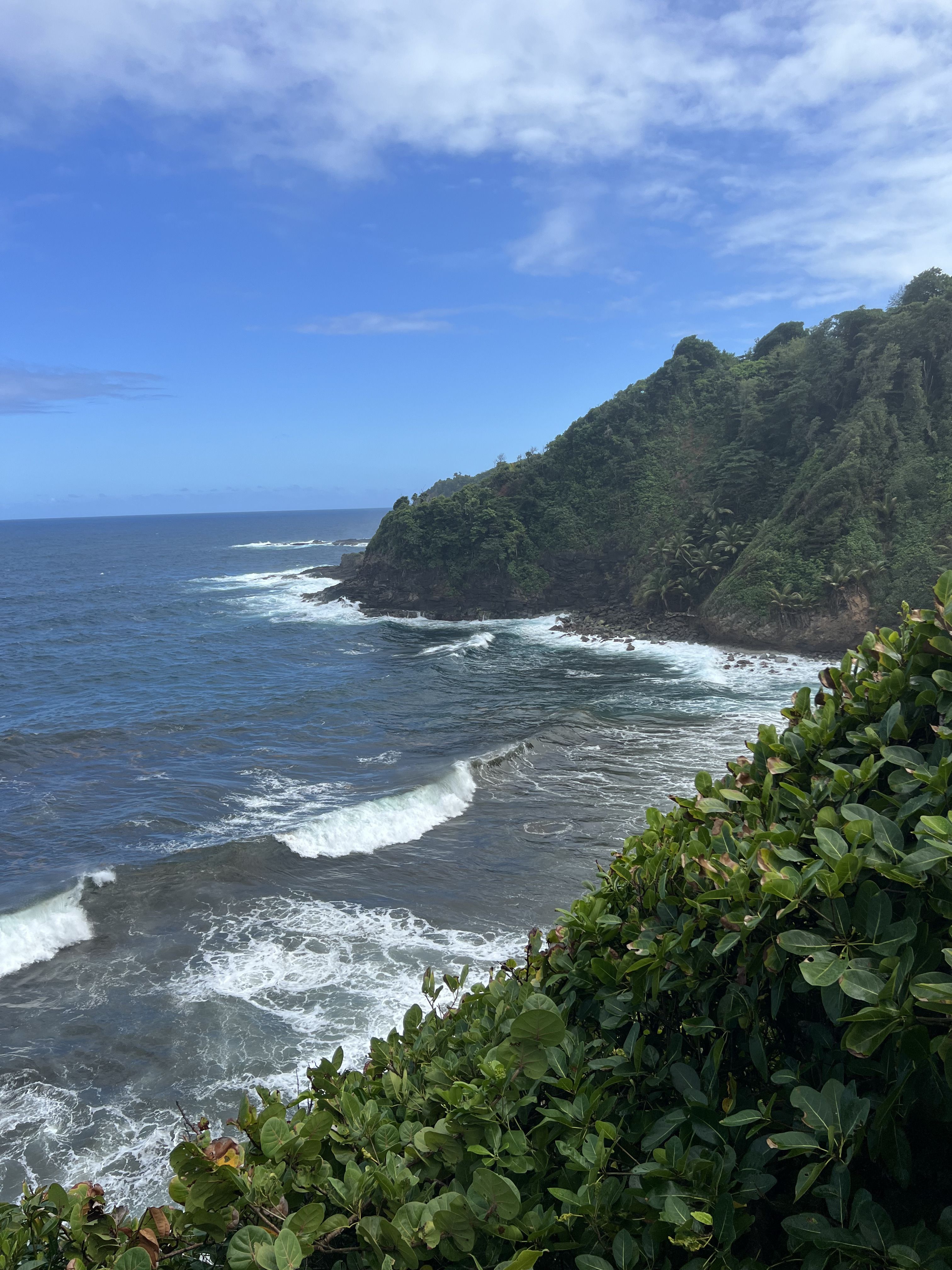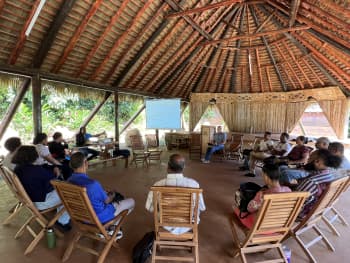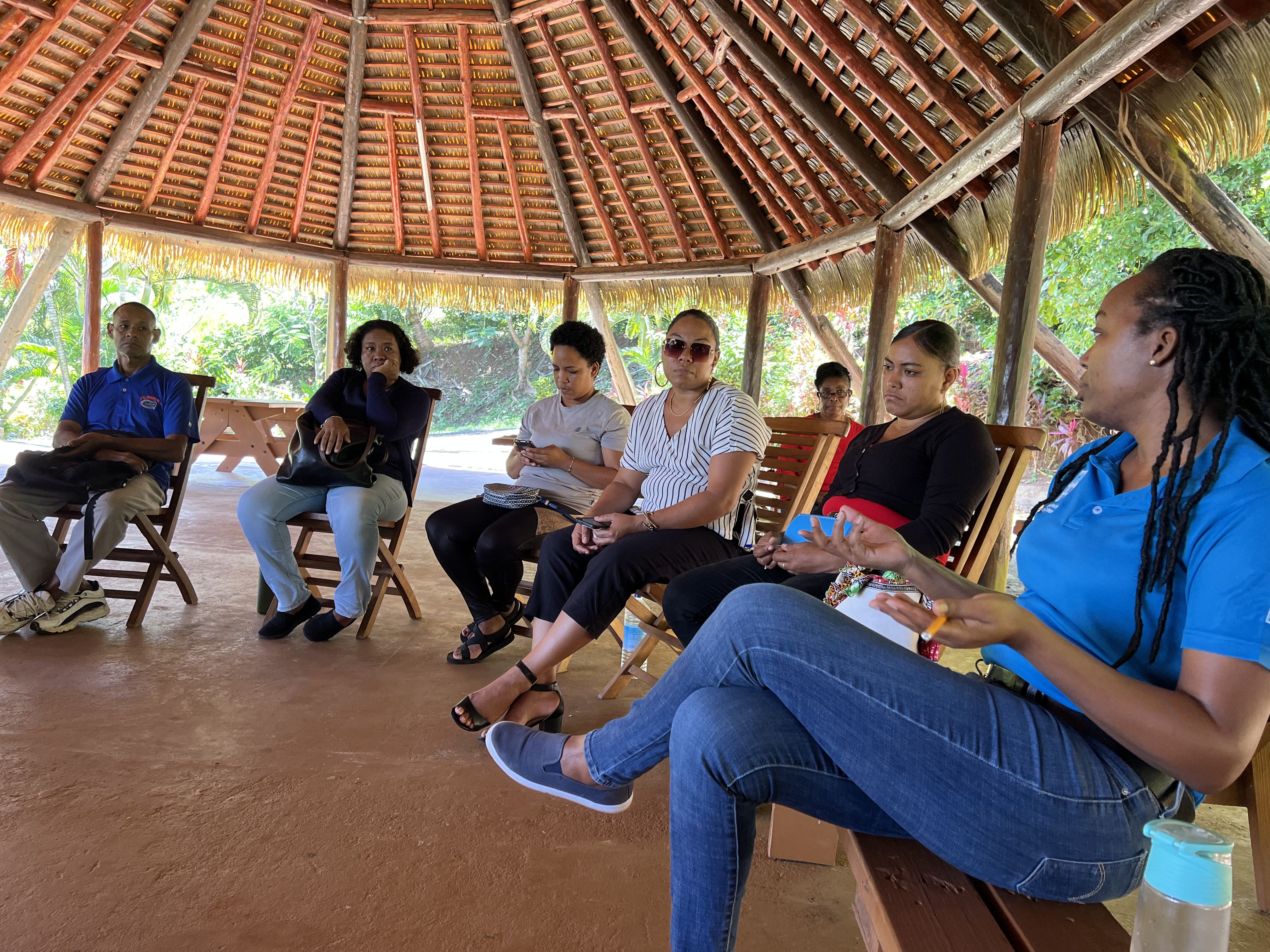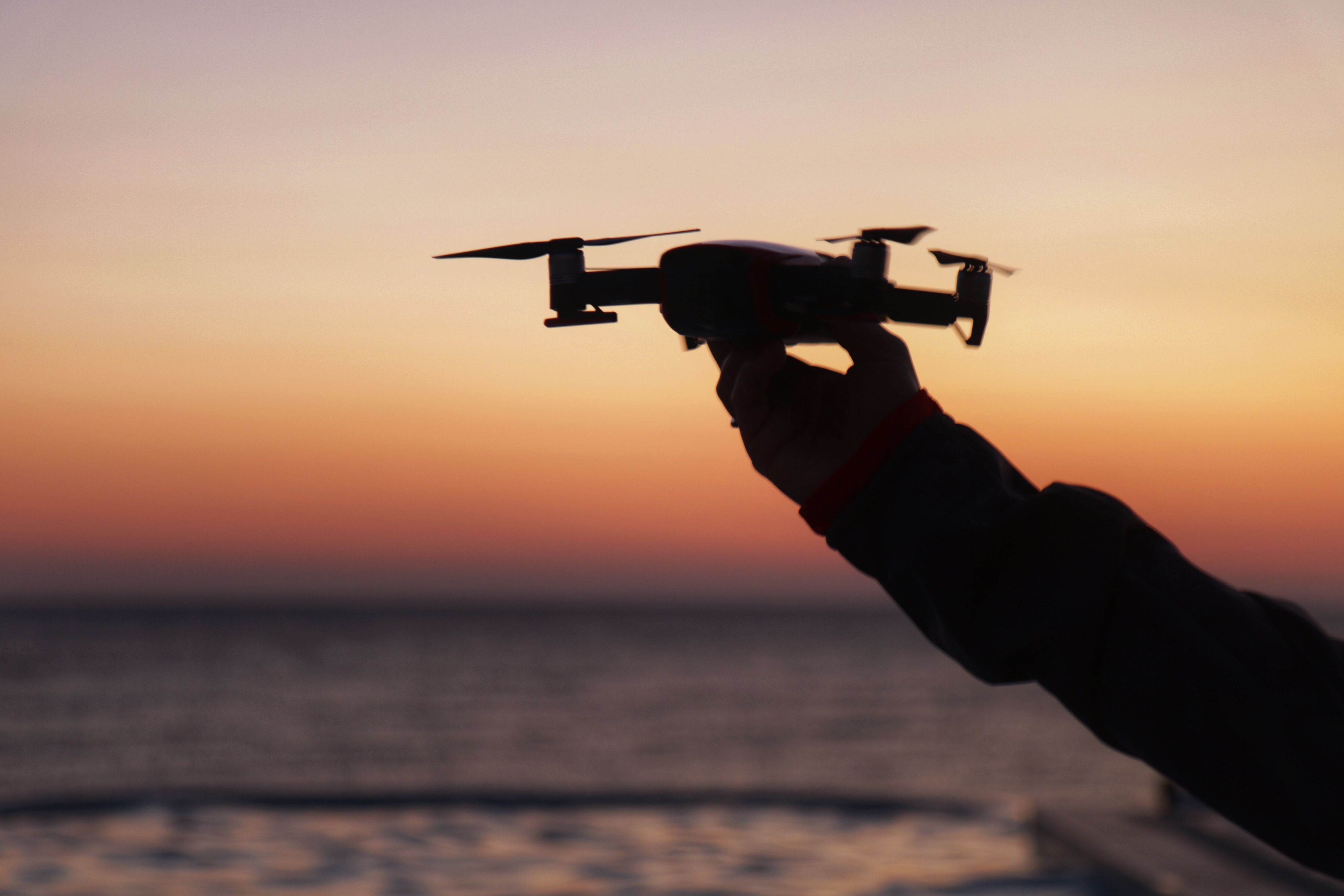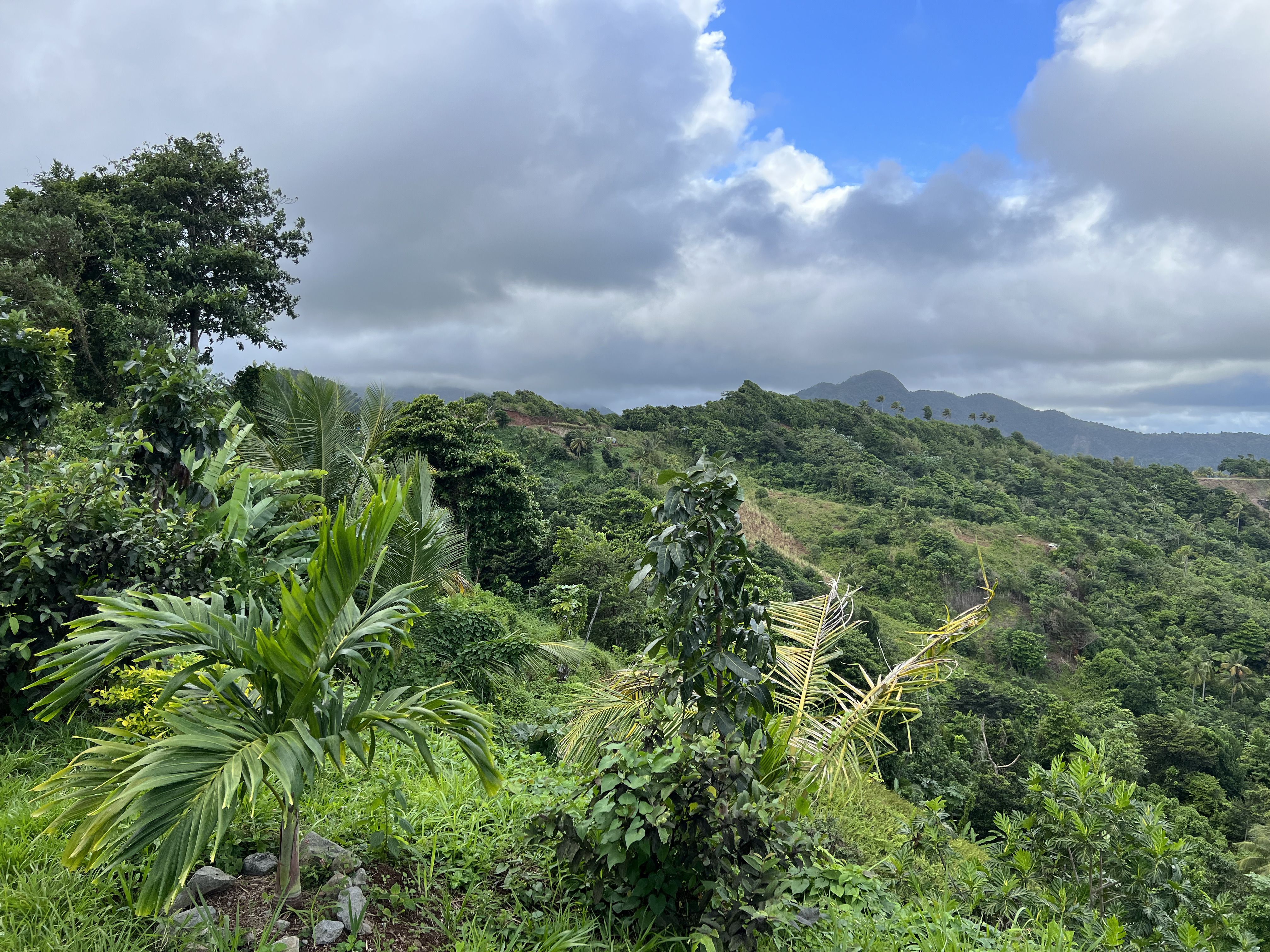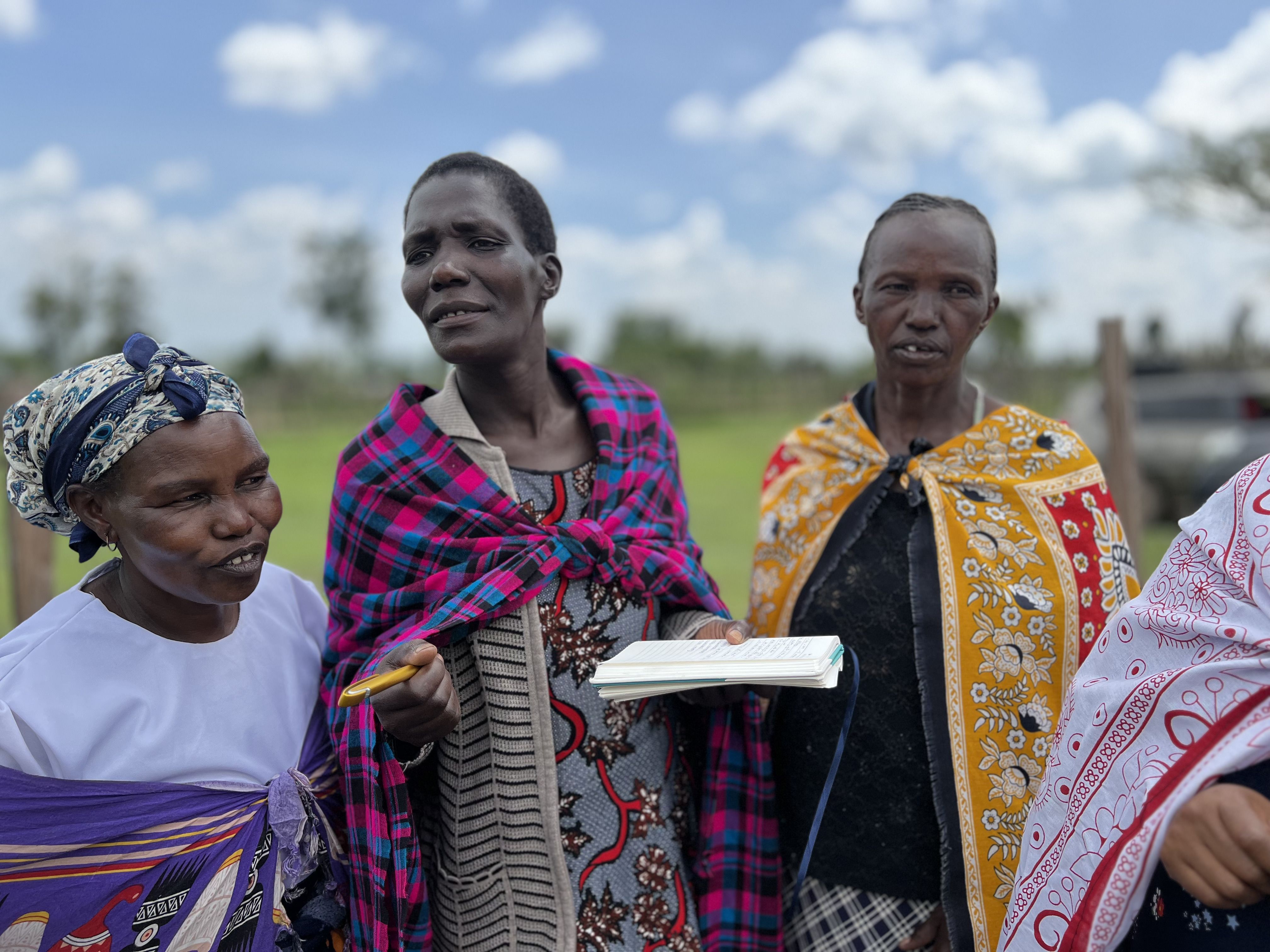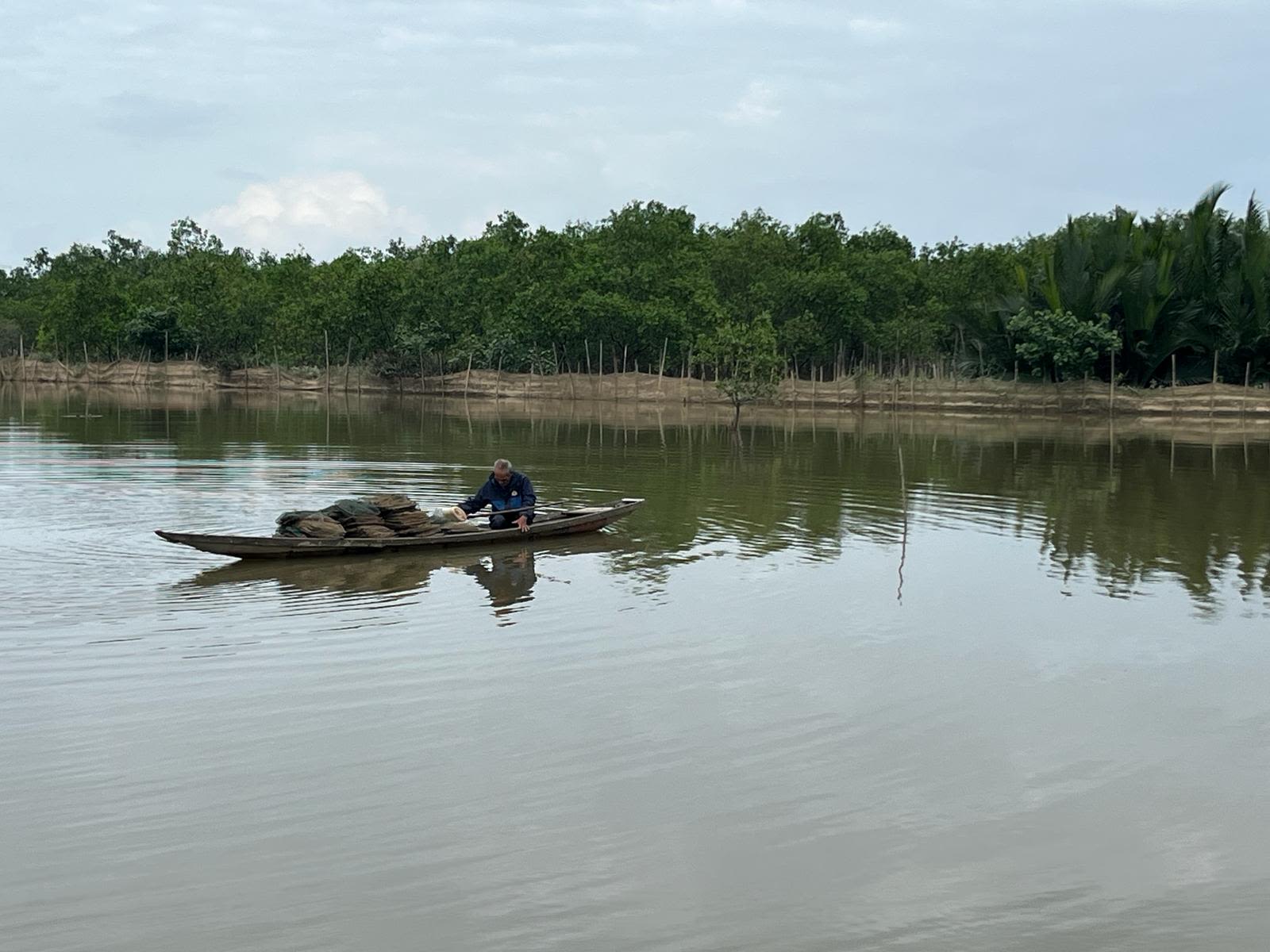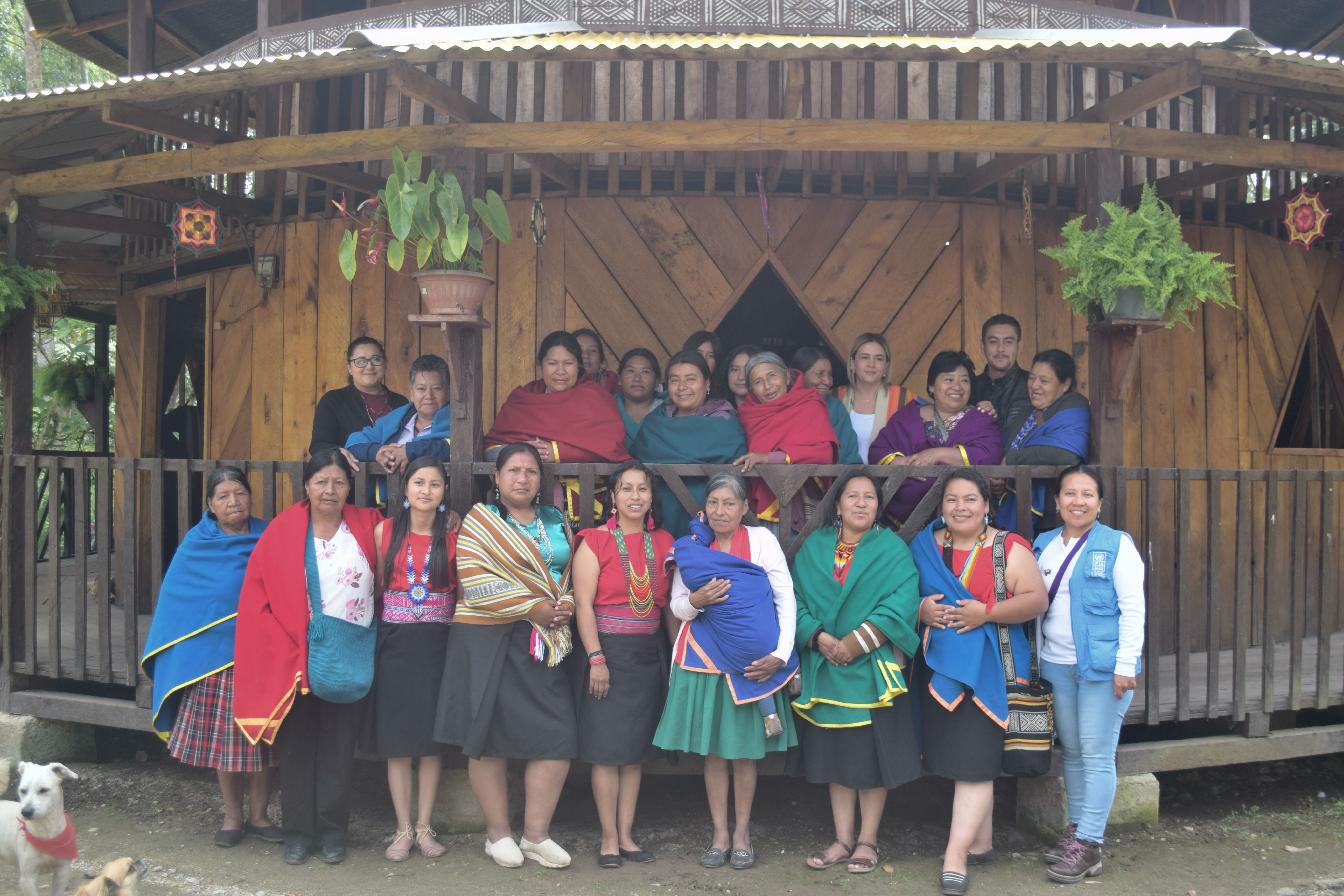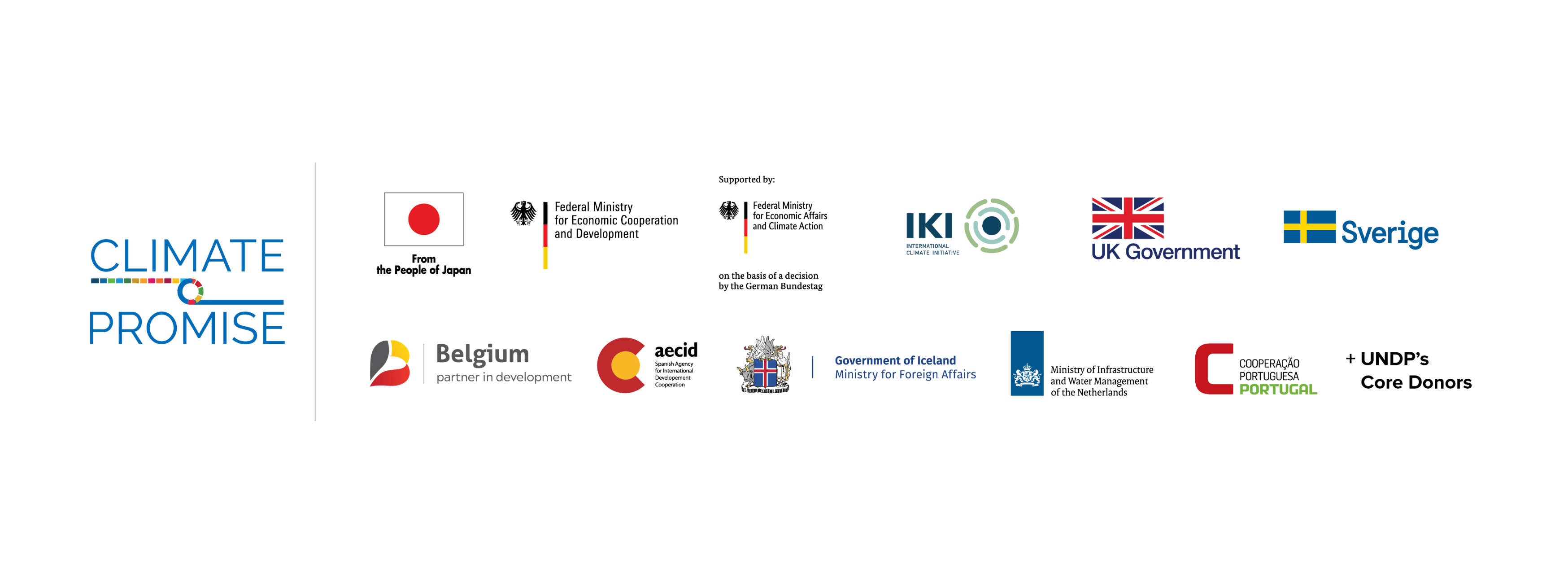Monitoring Dominica’s reforestation efforts
Engaging the Kalinago community
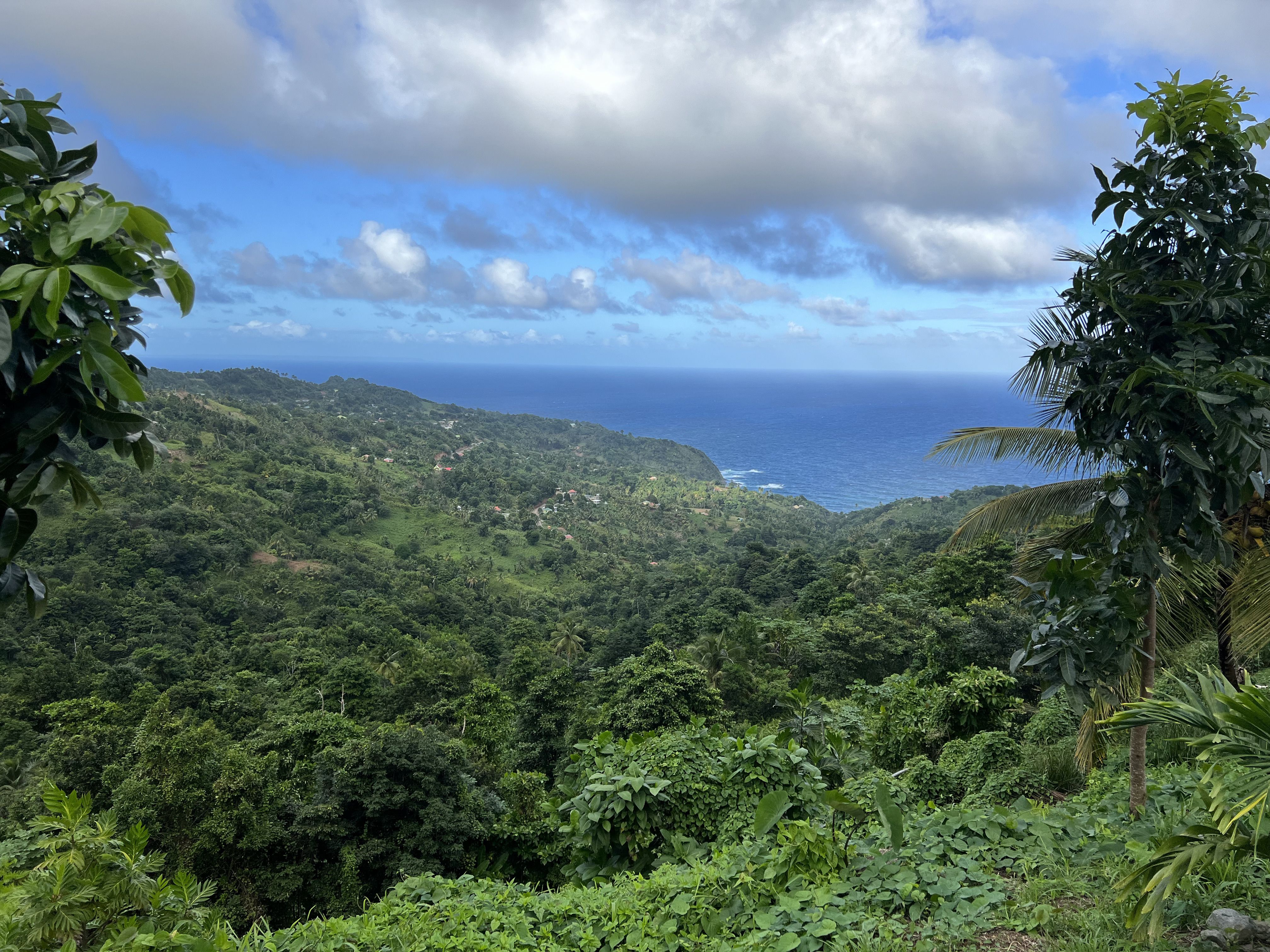
Background: In September 2017, Dominica was hit by hurricane Maria, the strongest storm the island had experienced in nearly 90 years. The impacts were devastating, causing multiple fatalities nationwide and resulting in the loss of up to 90% of the country’s forest cover, prompting Dominica to lose its status as a carbon sink. As a result of this drastic change in landscape, Dominica’s nationally determined contribution (NDC) highlights an aggressive reforestation program accompanied by sustainable forest management as a key priority for achieving its national mitigation targets.
Dominica’s vision for restoring its forest cover and the role of the Kalinago Indigenous Community
The Kalinago are the Indigenous Peoples of Dominica, inhabiting a reserve in the eastern portion of Dominica -referred to as the Kalinago Territory - which is home to approximately 3,000 Kalinago. Dominica’s NDC recognizes that, "the entire way of life and culture of the Kalinago is under threat from climate change, with impacts on the Territory’s economy and natural resources resulting in increased poverty and hardship.” This is evidenced by the fact that Hurricane Maria destroyed 90% of homes in the Kalinago community and devasted climate-sensitive livelihoods the community depends on. As the Kalinago are extremely vulnerable to climate change and impacts of natural disasters, restoration efforts are essential for this community. And the Kalinago people play a pivotal role in restoration efforts given their Traditional Indigenous knowledge of the forests and their deeply rooted relationship with the forest’s resources.
To track progress toward meeting these national forest restoration goals and related NDC mitigation targets, Dominica has recognized in its NDC the need to strengthen the national Monitoring, Reporting and Verification (MRV) system. To contribute to meeting this need, UNDP has been supporting Dominica in formulating measurable indicators for each of its NDC targets. UNDP, through the Climate Promise, has also been supporting Dominica to include Community Forest Monitoring as a key component of its national MRV system, with in partnership with the Kalinago community.
Photo: Nina Kantcheva
Photo: Nina Kantcheva
UNDP’s Support to Community Monitoring of Forest Restoration Efforts
UNDP has been working with the Government of Dominica to pilot community monitoring in the Kalinago territory. Recognizing the importance of the Kalinago territory in national reforestation efforts and the role that the Kalinago community can play in providing real-time data, it is envisioned that Government and the Kalinago community can utilize drone technology to potentially contribute to the MRV approach to measure progress against the NDC mitigation targets, which are reliant on the success of forest restoration efforts. One of the NDC indicators for the forest sector is related to net removals and requires the collection and validation of data on the number of hectares of forested land, one area where data from the Kalinago community can be utilized.
As well as working with the government to identify entry points for community monitoring for NDC implementation and tracking of progress, UNDP has also initiated dialogues with the Kalinago community to introduce them to the NDC targets and indicators, as the Kalinago have expressed the need to better understand these targets so they can ensure that their work and efforts are complementary. UNDP supported assessments including a greenhouse gas stock take for the AFOLU sector in Dominica, as well as a land suitability study and assessment of mitigation options, with a particular emphasis on the Kalinago Territory and how community-based monitoring can be included in international reporting.
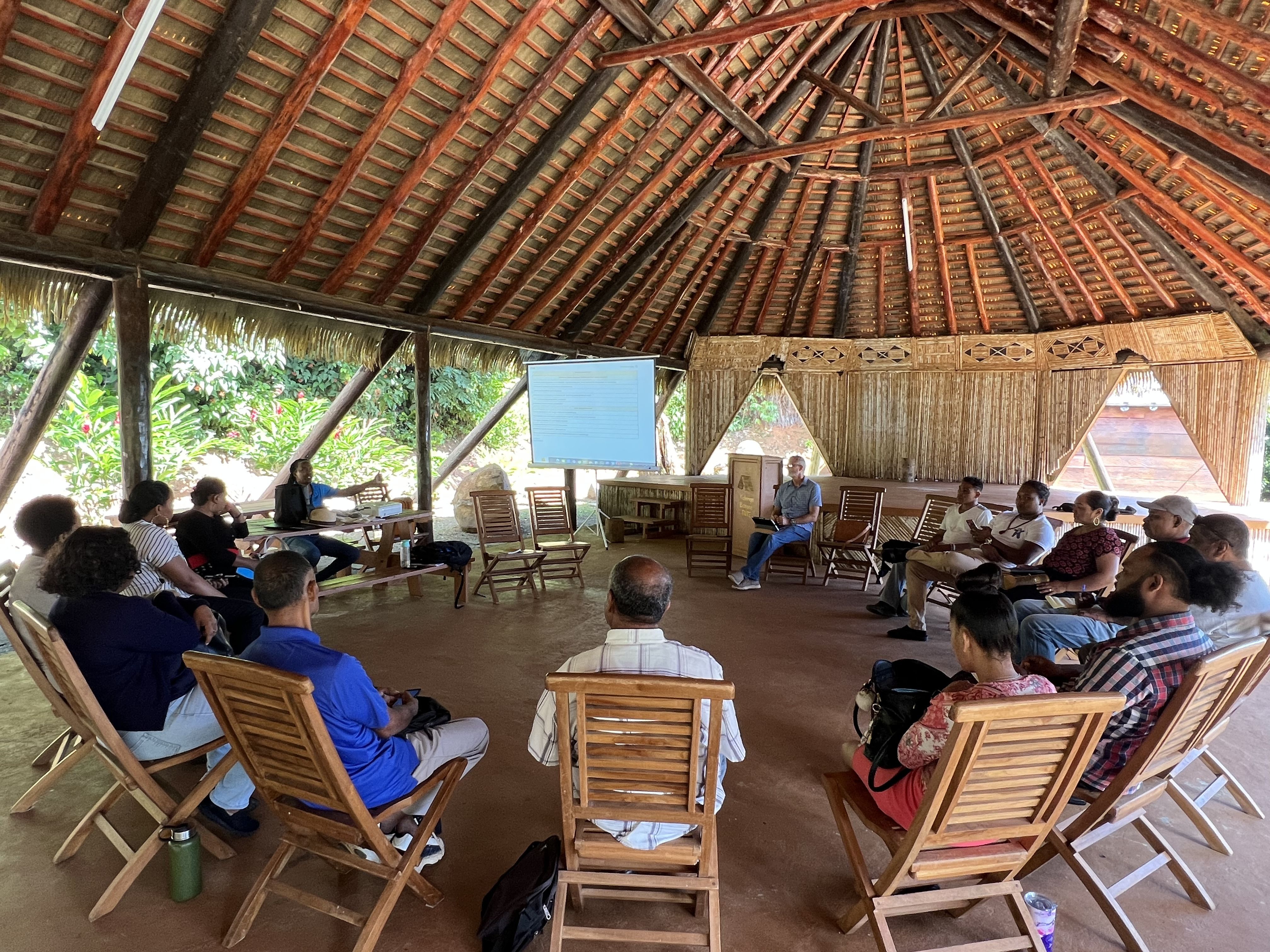
However, in order to make this community monitoring pilot a reality, further financial and technical support is needed to:
Photo: Nina Kantcheva
Photo: Nina Kantcheva
1
Build knowledge of the Kalinago community on the NDC targets and indicators;
2
Provide adequate drone technology and related training to the Kalinago community and responsible Government officials to facilitate data collection;
Photo: Nina Kantcheva
Photo: Nina Kantcheva
3
Convene knowledge exchange sessions between Government and the Kalinago community on useful traditional/indigenous knowledge related to reforestation;
Photo: Nina Kantcheva
Photo: Nina Kantcheva
4
Restart a successful para-foresters program that paired Forestry Department officials with Kalinago community members to exchange experience in forest management from complementary perspectives.
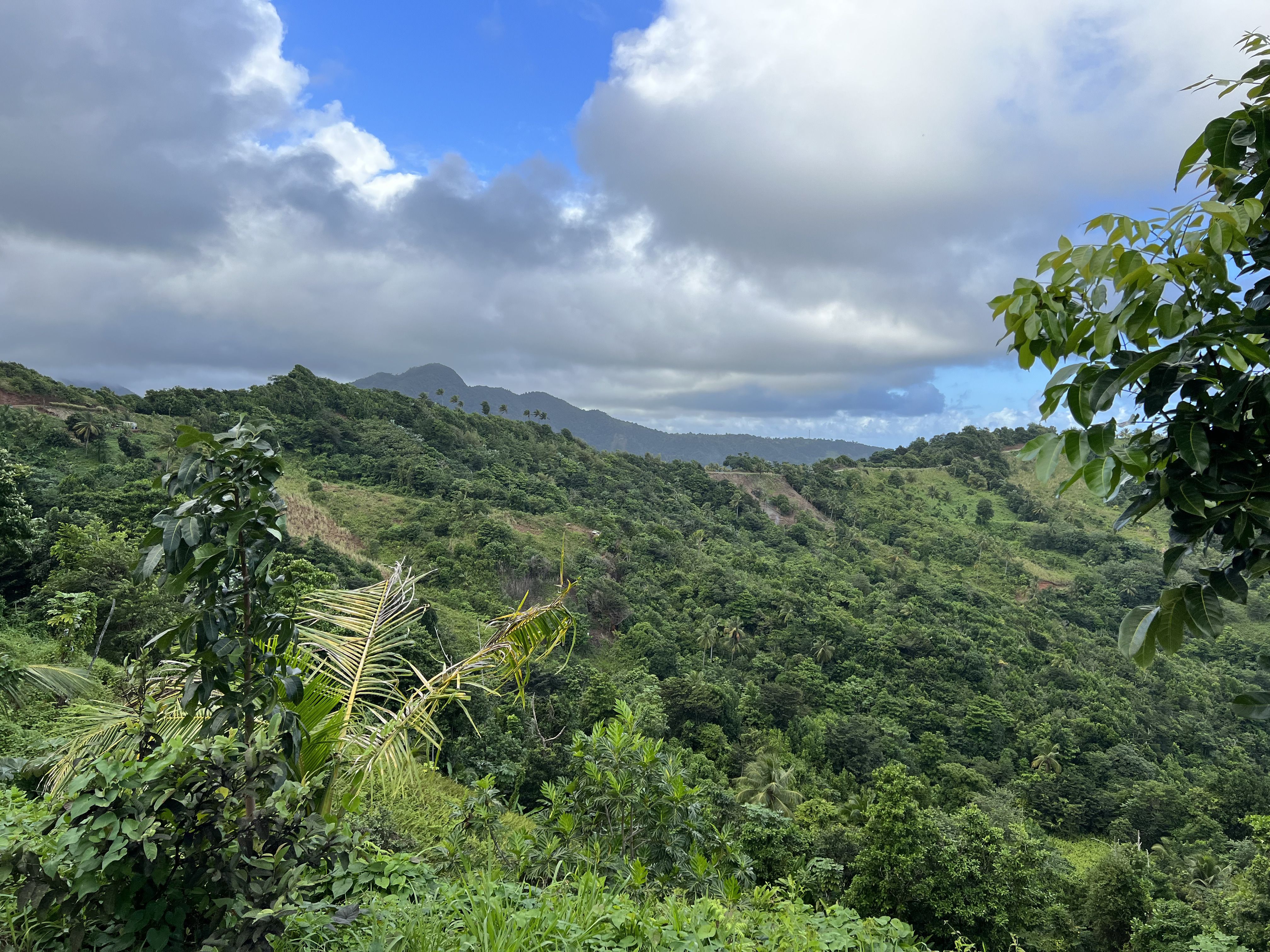
Once successfully piloted, this initiative will hopefully serve as a model for engaging local communities and indigenous people in NDC monitoring.
UN Disclaimer
The views expressed in this publication are those of the authors and do not necessarily represent
those of the United Nations, including the UN Development Programme, or UN Member States.
About UNDP’s Climate Promise
UNDP’s Climate Promise is the largest global offer on NDC support, covering over 120 countries and territories, representing 80 percent of all developing countries globally – including 40 least developed countries, 28 small island developing states, and 14 high emitters – to enhance their Nationally Determined Contributions under the global Paris Agreement. Delivered in collaboration with a wide variety of partners, it is the world’s largest offer of support for the enhancement of climate pledges.
Learn more at climatepromise.undp.org and follow at @UNDPClimate.
UNDP is the leading United Nations organization fighting to end the injustice of poverty, inequality, and climate change. Working with our broad network of experts and partners in 170 countries, we help nations to build integrated, lasting solutions for people and planet. Learn more at undp.org or follow at@UNDP.
